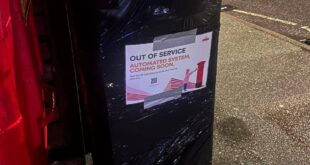Mark Adams, VP of BigCommerce EMEA, comments on what the Royal Mail strike means for merchants and the alternatives they can consider to avoid disappointing sales this quarter.
The final quarter is the most important time of the year in the retail calendar. With Black Friday, Cyber Monday and Christmas taking centre stage, the festive season often accounts for thirty per cent of revenue as shoppers scramble for the best deals to fill stockings.
This year, BlackFriday.com predicts online spending will surpass US $12 billion, with 61 percent planning to do most of their holiday season shopping online. This may prove problematic locally considering that earlier this week, Royal Mail workers voted to strike over job insecurity and employment terms and conditions. The move is raising fears there could be walkouts and strikes in the run-up to Christmas, which could have serious implications for online orders and deliveries.
Currently, Royal Mail holds 51 per cent of the British parcel market, but the courier company has faced increasing pressure in recent years from the likes of Amazon Prime and multinational delivery businesses such as DPD, Yodel and Hermes.
As a result of the strike, retailers can expect to see a rise in cart abandonment as consumers choose to shop elsewhere when their parcel can’t be delivered within a certain timeframe.
Click and collect
Given Black Friday is just around the corner and merchants might not have enough time to strike a deal with another delivery supplier, they should explore other customer ‘touch points’ and utilise click-and-collect as a delivery option.
The appetite for click-and-collect services has grown significantly in recent years. According to Barclaycard, a third of retailers who offer click-and-collect have seen store sales increase, with 68 per cent of shoppers now choosing to pick up online orders in-store in order to avoid missing deliveries. With an additional 85 per cent of customers admitting they buy additional items in-store when using click-and-collect.
Several retailers have jumped onboard with this trend. For instance, John Lewis recently extended its click-and-collect trial with the Co-op, while Amazon now allows customers to collect packages from Next stores. This shows that consumers want more retailers to pair up to allow the collection of parcels from more convenient locations.
Closing the loop on returns
During the strike, delivering parcels to consumers is only half of the problem. Whilst many merchants use a multitude of couriers, these will have differing delivery and returns policies. Online retailers must also think strategically about how they will manage their returns policy during the strike, especially given this time of year when businesses begin to handle a greater volume of returns.
Generous returns policies, including free returns, have long been a feature of ecommerce, making up for customers’ inability to try items on before purchasing. So much so that customers expect a seamless returns process. Our recent study shows that 35 per cent of UK consumers view delivery as such a critical part of the overall experience that they have stopped shopping with an online retailer altogether because of a negative shipping experience. Forty-four per cent of UK online shoppers avoid retailers that don’t offer free delivery and a further 37 per cent of customers expects a pre-paid returns label.
Partnering with a store-based parcel delivery and returns service is one option. Collection points or ‘drop off delivery’ stores are often in the form of convenience stores and corner shops that exist on high streets. Consumers can pick up their deliveries more flexibly as these stores are open seven days a week and later than your standard post office. That way, merchants can drop off a series of parcels in one delivery rather than going door to door.
Diverting traffic to in-store
Whilst it is likely that traffic and sales are set to fall to online retailers that have partnered with Royal Mail as their delivery supplier, merchants have the opportunity to divert these customers to their physical stores. According to analysis firm Springboard, the number of people out shopping in the UK in November last year dropped to its lowest level since the 2008 recession.
Footfall at shopping centres, retail parks and high streets fell 3.2 per cent. The figures showed the Black Friday effect was driving more shopping online during a longer period, the firm said. Yet, shoppers often browse a retailer’s site and choose not to make a purchase – but that doesn’t mean you’ve lost them. With the right retargeting strategies, merchants can remind customers of what they were looking at on their site with a follow up email, bringing the brand back to fore. Rather than divert the customer back to the online site, why not offer them an in-store discount code encouraging them to shop at your store?
The number of shoppers heading to UK high streets, retail parks and shopping centres has fallen by 10 per cent in the last seven years, the latest research shows. Yet, brands are bucking the trend. Online sleep brand Casper announced its first brick-and-mortar retail partnership in the UK with John Lewis & Partners in August. Also, digital direct-to-consumer razor brand Harry’s has moved into the offline retail space, striking a deal with Boots that will eventually see its products sold in 300 UK stores. Customers are choosing to shop in-store with brands they resonate with online.
It’s not all doom and gloom
Whilst a Royal Mail strike is on the cards, it may not land directly on Black Friday or the final few days before Christmas. Retailers, however, will need to stay sharp and remain watchful of any strike announcements, as customers may go elsewhere if they’re not told well in advance of delays to their delivery caused by the strike. Retailers should also consider offering customers alternatives such as reserving items in nearby stores that have them in stock, or click-and-collect options to ensure customers can still have the option to make a purchase.
Source link



